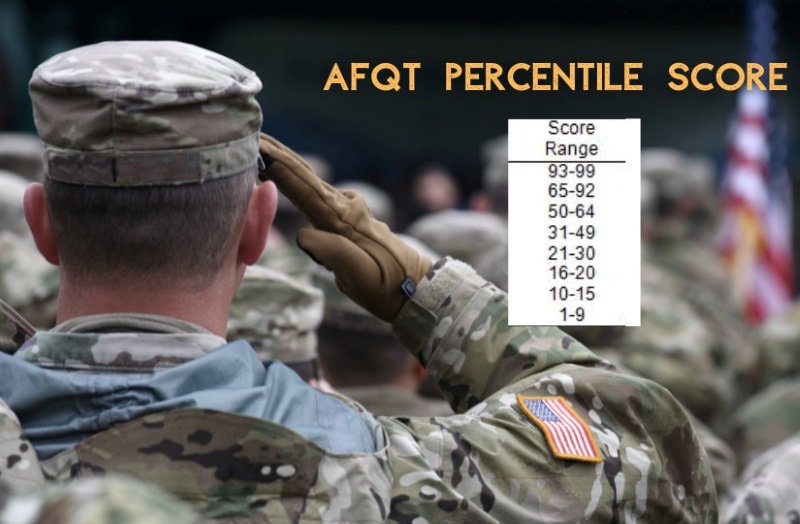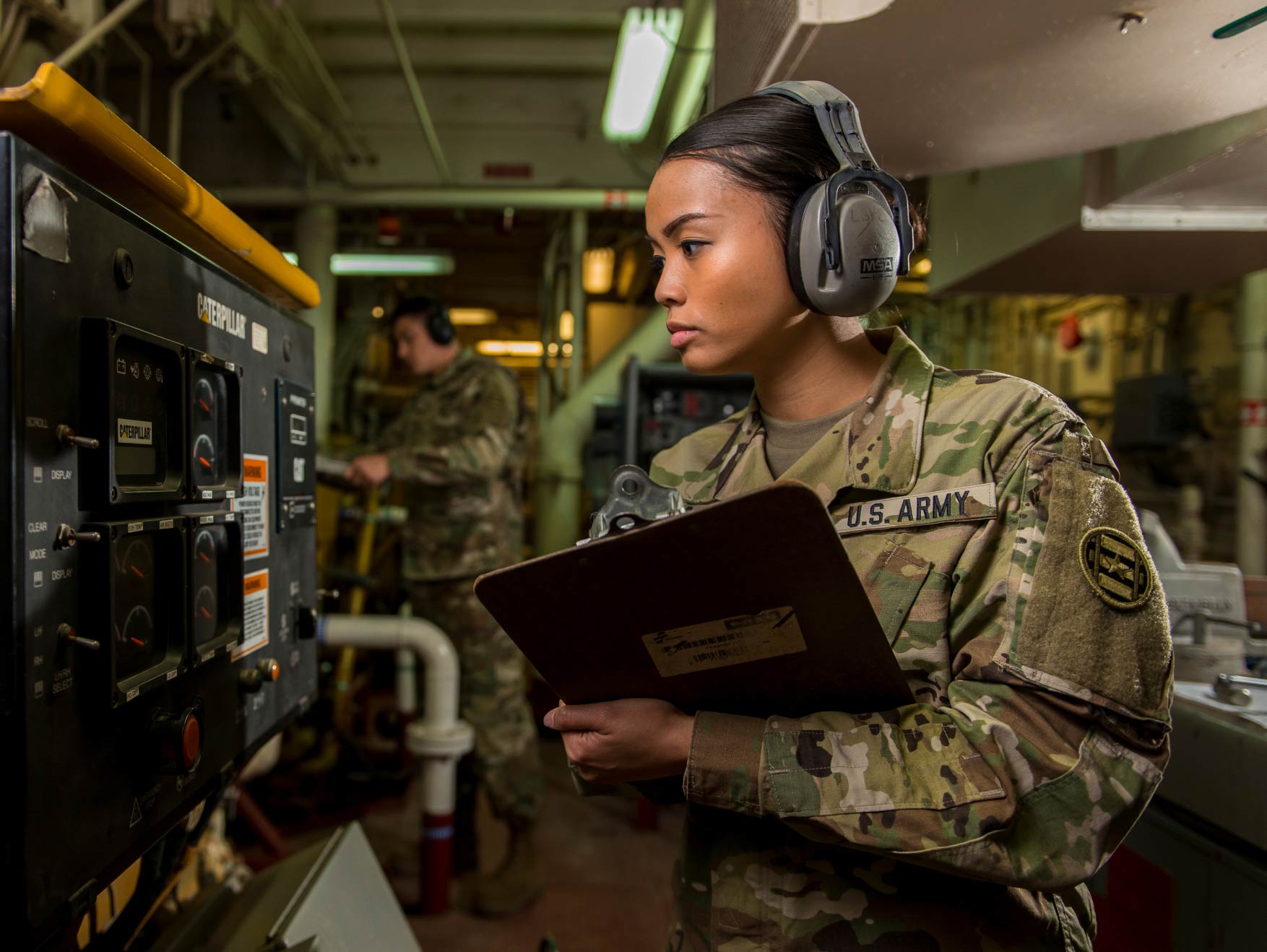Understanding your AFQT score is extremely important for anyone considering a military career. This score not only determines your eligibility for enlistment but also opens up various opportunities within the armed forces.
With the aim of supporting your military path, this comprehensive post is created to address all your concerns about the AFQT score. From AFQT score meaning, its significance to score calculators and requirements, we have got you covered. Let’s dive in right now!
What is the AFQT score?
The Armed Forces Qualification Test (AFQT) score is one of the key components in your ASVAB score report, found at the end of the report. This score is derived from your scores of four out of nine critical ASVAB subtests, namely:
- Arithmetic Reasoning (AR)
- Mathematics Knowledge (MK)
- Paragraph Comprehension (PC)
- Word Knowledge (WK)
In which, scores from PC and MK are combined into Verbal Expression (VE). These score components are combined using the formula mentioned below to determine two important factors: AFQT percentile score and AFQT category. These are essential for measuring your abilities in a relative context and determining your suitability for military service.
AFQT percentile score
The AFQT score is presented as a percentile rank, indicating how a test-taker’s performance compares to a nationally representative sample of 18 to 23-year-old participants in 1997. For example, an AFQT score of 70 means you scored better than 70% of test-takers. The AFQT percentile score ranges from 1 to 99.
The scoring process for this AFQT percentile score is relatively complicated. Therefore, to help you easily estimate your score and military eligibility, ASVAB Prep has developed a free online AFQT score calculator. Check it right now to get your instant score!

AFQT category
According to the official ASVAB, the overall AFQT percentile scores are categorized into eight groups, ranging from Category I to Category V. AFQT results of the test-taker are ranked from the highest – corresponding to Category I to the lowest – corresponding to Category V, as the following table:
| AFQT category | AFQT percentile score range |
|---|---|
| I | 93-99 |
| II | 65-92 |
| IIIA | 50-64 |
| IIIB | 31-49 |
| IVA | 21-30 |
| IVB | 16-20 |
| IVC | 10-15 |
| V | 1-9 |
These categories help military recruiters quickly assess a candidate’s suitability for various roles and training programs.
How does AFQT impact your military enlistment?
The AFQT score is the first key determining your military life. Here are some of the most important impacts of this score:
- Basic eligibility for military enlistment: Your AFQT score is the first hurdle to clear for military enlistment. Each branch of the military has a minimum required AFQT score, ensuring that recruits meet a baseline level of aptitude. Failing to meet this score means you won’t be eligible to join the military.
- Advanced training programs: A higher AFQT score can qualify you for advanced training programs and specialized roles within the military. These programs offer extensive training and can significantly enhance your military career prospects.
- Enlistment bonuses and incentives: Recruits with higher AFQT scores can be eligible for enlistment bonuses and other incentives. These benefits are designed to attract highly qualified individuals to critical roles within the armed forces.
- Strength and weakness identification: Your AFQT score helps identify your strengths and weaknesses, allowing military recruiters to place you in roles where you are most likely to succeed and excel. This ensures that you are well-suited to your position and can perform effectively.

What is a good AFQT score?
Generally, a good AFQT score is a score that qualifies you for your desired military branches. Therefore, when considering what makes a good AFQT score, keep these two criteria in mind:
- Personal goals: Your personal goal in your military career significantly impacts what constitutes a good score. If you are pursuing a high competitiveness, you have to aim higher AFQT score to meet the branch standards.
- Minimum score requirements of each branch: Each branch has a minimum AFQT score as mentioned in the following section. Understanding this baseline helps you decide which score qualifies you to your desiring branch.
Typically, a score of 50 or higher can be considered a good score, indicating you have above-average cognitive abilities and are likely to qualify for all branches and a wider range of training programs.

Minimum AFQT score for each branch
Each branch of the military has its own minimum AFQT score requirements. According to the SBE, the minimum scores for High School Diploma (HSD) and General Educational Development (GED) holders are as follows:
| Military branches | HSD holders | GED holders |
|---|---|---|
| AFQT score for Army | 31 | 50 |
| AFQT score for Air Force | 31 | 50 |
| AFQT score for Navy | 31 | 50 |
| AFQT score for Marine | 31 | 50 |
| AFQT score for Coast Guard | 36 | 50 |
| AFQT for National Guard | 31 | 50 |
AFQT score for the Army
The AFQT requirement to enlist in the Army is 31, provided the applicant is a high school graduate. GED holders usually need a high score, around 50, to increase their eligibility. The Army, in some cases, can make exceptions when a recruit shows exceptional talent in other areas.
AFQT score for the Air Force
To enlist in the Air Force, you must achieve at least 31 AFQT score or higher. Such a score is sufficient provided you have a high school diploma. In case you have a GED, you are required to achieve at least 50. Getting a higher AFQT score can significantly raise your chance of receiving incentives or getting into desired positions in the Air Force.
AFQT score for the Navy
The minimum requirement to enlist in the Navy is an AFQT score of 31. This minimum is for a recruit with a high school diploma, while holders of the GED generally have to score at least 50. The higher scores open avenues for candidates to get intensive and enlistment bonuses.
AFQT score for the Marines
For the Marines Corps, you are required to score at least 31 if you have a high school diploma. GED holders usually have to score 50 to make the qualified under the enlistment requirement.
AFQT score for the Coast Guard
The Coast Guard requires the highest minimum AFQT score, at 40 or more. For GED holders, the score requirement often falls at 50 or higher. This high score reflects the high demand for skills to complete training and tasks during service.
AFQT score for the National Guard
The National Guard requires at least an AFQT score of 31 for those holding a high school diploma, with GED holders needing at least 50. A higher AFQT score will increase your eligibility for additional benefits when enlisting in the National Guard.
FAQs
1. What is the average AFQT score?
The average AFQT score typically falls between 50 and 64, in the IIIA category. This score represents the 50th to 64th percentile, meaning you performed better than 50% to 64% of other test-takers.
2. Which military branch has the highest AFQT score?
The Coast Guard typically requires the highest AFQT score, with a minimum requirement of 36. However, certain specialized roles may require even higher scores.
3. What is the difference between AFQT and ASVAB?
The ASVAB is a comprehensive test that includes multiple subtests measuring various skills and abilities. The AFQT score is a subset of the ASVAB, focusing on four specific subtests to determine your overall qualification for military service. To understand more, read our post on AFQT vs ASVAB.
4. Is 70 a good AFQT score?
Yes, a score of 70 on the AFQT is a very good score. Scoring 70 means your performance was better than 70% of the other test-takers, demonstrating great skills and aptitude in four domains of ASVAB. With this score, you are qualified for all current AFQT requirements of the U.S. military branches. This score also gives you several bonus opportunities and advanced training.
Final thoughts
Above is everything you need to know about the AFQT score and its impact on your military career. Carefully read to understand the AFQT score meaning and requirements, and use our AFQT score calculator to determine your score and percentile rank. By following these steps, you will enhance your preparation and make informed decisions about the right military branches for you. If you have any questions about AFQT scores and our calculator, please leave a comment. We are always ready to help!




